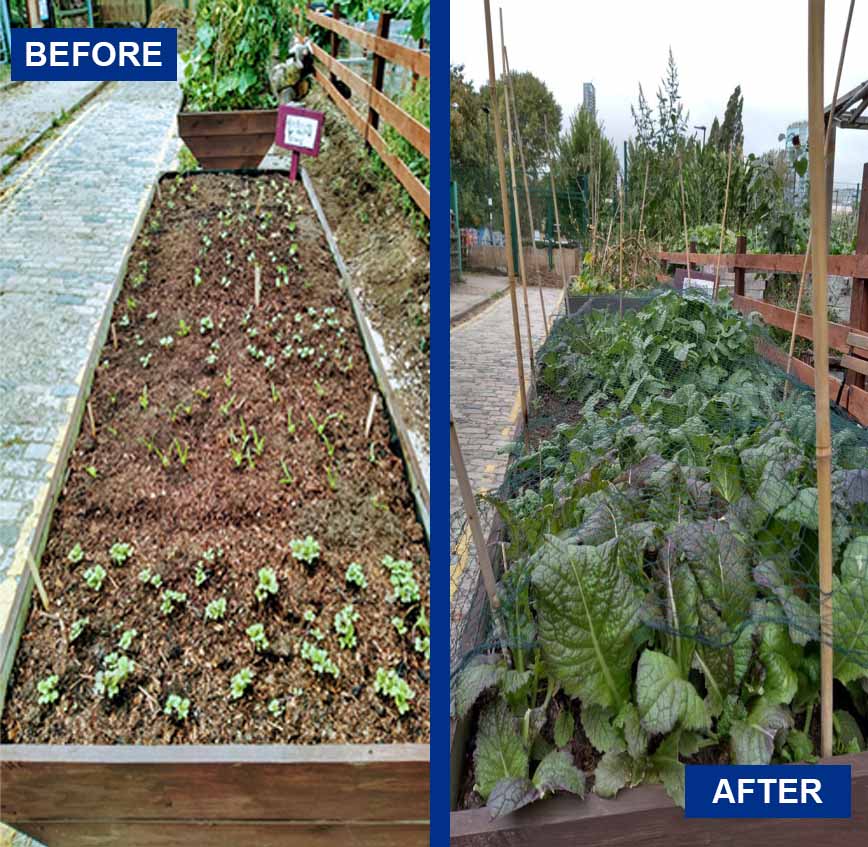Gardening for Health in Tower Hamlets

The G4H Project has its roots in increasing accessibility and participation in physical rehabilitation for a specific group of women in our community; to support improvements in both physical and emotional wellbeing. During a psychology-led reflective practice session, a physiotherapy colleague discussed the impact of not being able to successfully engage some service users in home based rehab and the impact of this on them and him. The physiotherapist became curious about why an evidence based approach was successful for some but not for others. From this point, there was a commitment to discover more by adopting a population health approach. We discovered the population that we needed to focus more on was Bengali women with reduced mobility within the context of chronic pain and emotional distress. This orientation enabled the adoption of a de-medicalised position which sought to co-produce an integrated therapies approach to rehab (physical and emotional).
What was the aim of the project?
Gardening for Health (G4H) is a group-based project for local Bengali Women who experience chronic pain within the context of reduced mobility, other physical health conditions and emotional distress. The project aims to re-engage women to their abilities by connecting with nature and being amongst other women who have similar experiences and difficulties.
Do the aims of the project have any clinical foundations, in terms of best practice evidence, that you knew about?
The aims are based on an integrated therapies approach – incorporating physiotherapy, psychology, occupational therapy and peer support models.
In what sense is the project codesigned and managed with service users themselves?
The guiding principles of this project are rooted in co-production – ideas are checked with the participating women to understand whether they are in keeping with an joint meaning-making approach; feedback is sought continually; transparency around an assets based approach are shared – the participating women are asked to share their knowledge to support the facilitators understanding!
Were any staff involved already gardening enthusiasts, or quite green fingered beforehand?
Some of us were green fingered and others less so! But as the group has progressed the passion for growing and gardening has rubbed off with even the most ambivalent staff member now trying to grow chillies!
As the project progressed, what did staff and service users get from it?
For the service users, there was a collective experience of ‘connection and acceptance’ alongside ‘determination and inspiration’ in knowing there was more to their identities and lives then their experiences of pain.
For staff, there were increases in job satisfaction and well being – promoting health through an asset led approach and connecting with nature has had an impact on us too.
Did multiple teams work on the project (ie, psychology services and/or AHPs?)
This is an integrated therapies approach incorporating physiotherapy, psychology, occupational therapy models alongside care navigation, peer and rehab support colleagues.
Any advice you can share on the challenges experienced?
The pandemic and lockdowns represented a huge challenge as participants were no longer able to come to the farm for sessions. The commitment of staff enabled everyone to galvanise ideas and quickly set up virtual gardening for health sessions. The dilemma of this time was transparently and compassionately shared with the service users and the significance of carrying on was agreed by all.
Any thoughts on the future of the project?
We continue to seek new ideas and opportunities alongside gardening – we successfully ran a recipes of life project last winter and this winter we are hoping to explore how sewing and embroidery may be utalised to further activate service users.
